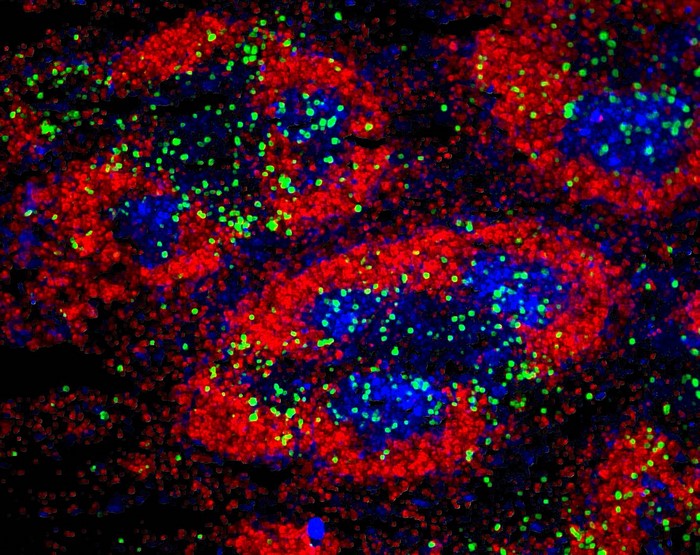Researchers at the Garvan Institute of Medical Research report they have discovered a protein that plays a critical role in immune cell function is at the root of immunodeficiency disorders. PI3K plays a crucial role in activating immune cells for growth, proliferation, survival, migration, and function. The researchers found that the genetic variations in activated PI3K Delta syndrome 2 (APDS2) and a similar disorder, APDS1, alter PI3K signaling in different ways, leading to distinct effects on the immune system.
The findings are published in the Journal of Experimental Medicine in an article titled, “Human PIK3R1 mutations disrupt lymphocyte differentiation to cause activated PI3K- delta syndrome 2.”
“Heterozygous loss-of-function (LOF) mutations in PIK3R1 (encoding phosphatidylinositol 3-kinase [PI3K] regulatory subunits) cause activated PI3Kδ syndrome 2 (APDS2), which has a similar clinical profile to APDS1, caused by heterozygous gain-of-function (GOF) mutations in PIK3CD (encoding the PI3K p110δ catalytic subunit),” wrote the researchers. “While several studies have established how PIK3CD GOF leads to immune dysregulation, less is known about how PIK3R1 LOF mutations alter cellular function. By studying a novel CRISPR/Cas9 mouse model and patients’ immune cells, we determined how PIK3R1 LOF alters cellular function.”
“This study tells us how signaling in the immune system needs to be tightly balanced to make an effective response to infection. Sometimes it’s turned down and you have a problem, and sometimes signaling being turned up can interfere with an immune response,” explained associate professor Elissa Deenick, PhD, head of the lymphocyte signaling and activation lab, co-lead of the Precision Immunology Program at Garvan, and senior author of the paper.
The findings reveal how finely tuned immune cell signaling must be, and how even minor disruptions can lead to immune deficiency or dysfunction.
“People with mysterious conditions often face challenges in obtaining an accurate diagnosis and understanding the root causes of their health issues. With better access to genomic testing, it’s going to become much easier for patients to receive diagnoses for conditions like APDS2. Knowing the genetic basis of a disease can enable targeted, personalized treatment plans that give patients the best chance of effective management or, hopefully over time, a cure,” said Stuart Tangye, PhD, professor and a senior investigator of the paper and head of the immunobiology and immunodeficiency lab at Garvan.




